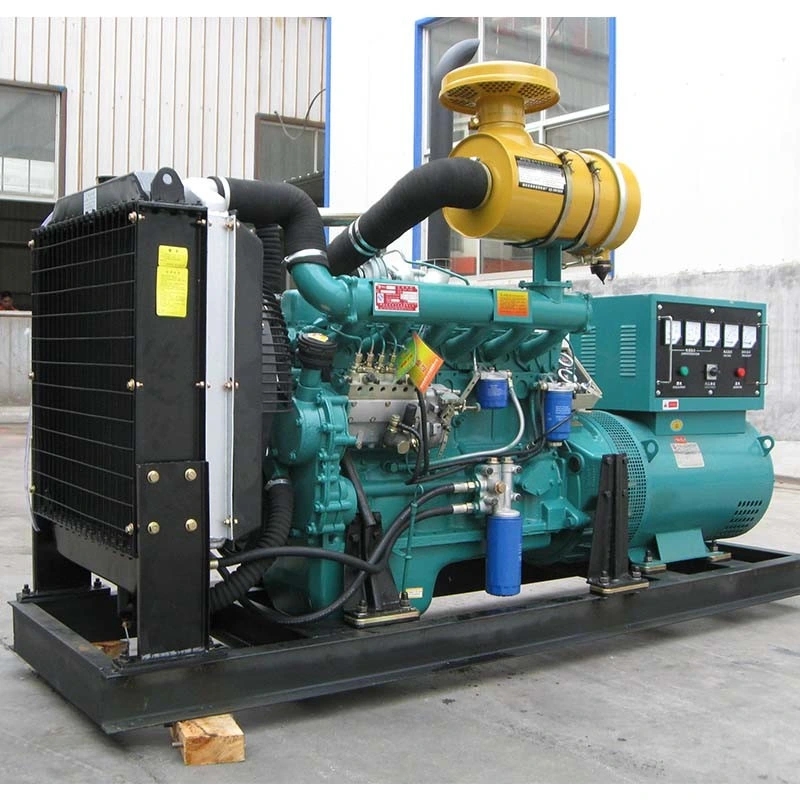Introduction
Diesel generators play a crucial role in providing reliable and cost-effective power solutions for a wide range of industrial applications. In the manufacturing sector, where uninterrupted power supply is essential for smooth operations, diesel generators have become the go-to choice for many businesses. This article will delve into the key features, benefits, and considerations of using diesel generators in industrial settings, highlighting their importance in powering success in the manufacturing industry.
Key Features of Diesel Generators for Industrial Applications
1. Robust and Reliable Performance: Diesel generators are known for their robust construction and reliable performance, making them ideal for industrial applications where continuous power supply is essential. These generators are designed to withstand harsh operating conditions and provide uninterrupted power for extended periods.
2. High Power Output: Diesel generators are capable of delivering high power output, making them suitable for powering heavy machinery and equipment in industrial settings. With a wide range of power capacities available, diesel generators can meet the specific power requirements of different manufacturing operations.
3. Quiet 400kW generator for industrial applications : Diesel generators are highly fuel-efficient, offering cost-effective power solutions for industrial applications. Compared to other types of generators, diesel generators consume less fuel per unit of power generated, resulting in lower operating costs for businesses.
4. Easy Maintenance: Diesel generators are relatively easy to maintain and require minimal servicing to ensure optimal performance. With proper care and regular maintenance, diesel generators can operate efficiently for many years, providing a reliable power source for industrial operations.
5. Quick Start-Up Time: Diesel generators have a quick start-up time, allowing businesses to restore power rapidly in the event of a power outage or emergency. This feature is critical for industrial applications where downtime can lead to significant losses in production and revenue.
Benefits of Using Diesel Generators in Industrial Settings
1. Reliability: One of the primary benefits of using diesel generators in industrial settings is their reliability. Diesel generators are known for their durability and ability to provide continuous power supply even in challenging conditions, ensuring uninterrupted operations for manufacturing facilities.
2. Versatility: Diesel generators are versatile power solutions that can be used in a wide range of industrial applications, from small workshops to large manufacturing plants. With various power capacities available, businesses can choose a diesel generator that meets their specific power requirements.
3. Cost-Effectiveness: Diesel generators offer a cost-effective power solution for industrial applications, thanks to their fuel efficiency and low operating costs. Businesses can save money on energy expenses by using diesel generators as their primary power source for manufacturing operations.
4. Emergency Backup Power: Diesel generators serve as reliable emergency backup power sources for industrial facilities, providing a critical lifeline during power outages or grid failures. With a diesel generator in place, businesses can minimize downtime and maintain essential operations during unforeseen events.
5. Scalability: Diesel generators are scalable power solutions that can be easily expanded or upgraded to accommodate growing power needs in industrial settings. Businesses can add more generator units or increase the capacity of existing units to meet the evolving demands of their manufacturing operations.
Considerations for Using Diesel Generators in Industrial Applications
1. Power Requirements: Before selecting a diesel generator for industrial use, businesses need to assess their power requirements accurately. Understanding the amount of power needed to run machinery, equipment, and other electrical loads will help determine the appropriate generator size and capacity.

2. Fuel Supply: Diesel generators require a steady supply of diesel fuel to operate efficiently. Businesses must ensure they have access to an adequate fuel source and establish proper fuel storage and refueling procedures to maintain uninterrupted power supply for their industrial operations.
3. Maintenance Schedule: Regular maintenance is essential to keep diesel generators in optimal working condition. Businesses should establish a maintenance schedule and adhere to manufacturer guidelines for servicing, inspections, and repairs to prevent downtime and ensure the longevity of their generator units.
4. Environmental Impact: Diesel generators emit exhaust gases and noise during operation, which can have environmental implications in industrial settings. Businesses should consider installing emission control systems and soundproofing measures to minimize the environmental impact of diesel generator use.
5. Compliance with Regulations: Industrial facilities must comply with local regulations and safety standards when using diesel generators. Businesses should ensure that their generator units meet regulatory requirements for emissions, noise levels, and installation to avoid penalties and maintain a safe working environment.
Conclusion
In conclusion, diesel generators are indispensable power solutions for industrial applications, particularly in the manufacturing sector where reliable and cost-effective power is essential for operations. With their robust performance, high power output, and fuel efficiency, diesel generators offer numerous benefits for businesses looking to power success in industrial settings. By considering key features, benefits, and considerations of using diesel generators, businesses can make informed decisions when selecting and deploying these essential power sources for their manufacturing operations.
